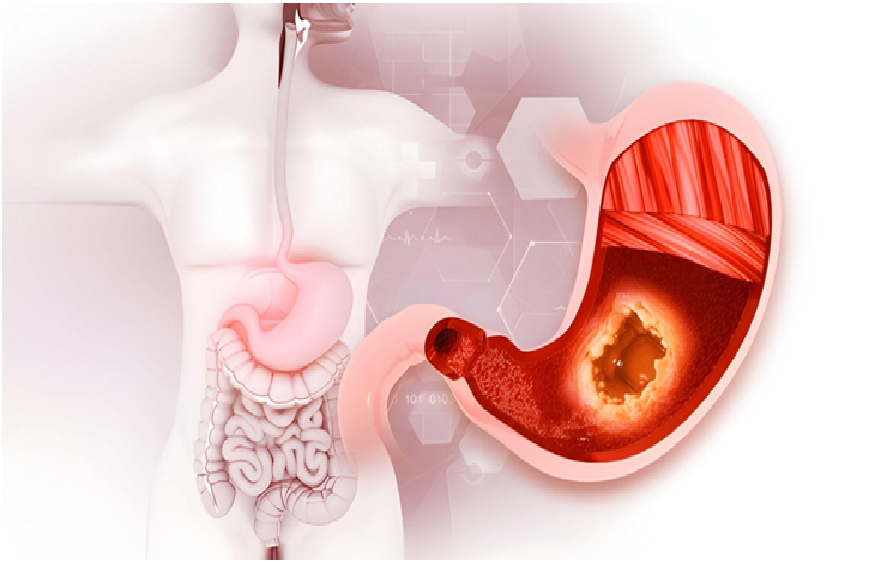Stomach ulcers are painful sores that form on the lining of the stomach and other digestive organs. These ulcers can cause significant discomfort and, if left untreated, can lead to serious health complications. Understanding the causes of stomach ulcer, symptoms, and treatment options is crucial for managing and preventing this condition.
If you are facing the symptoms of stomach ulcer as well, a visit to the best hospital in Patna can certainly help with the remedial and curative process.
Causes of Stomach Ulcers
Identifying the causes is essential for preventing the condition and managing existing ulcers.
Helicobacter pylori (H. pylori) Infection:
One of the most common causes of stomach ulcers is an infection with Helicobacter pylori bacteria. H. pylori damages the mucous lining of the stomach, making it more susceptible to the harmful effects of stomach acid. According to the World Health Organization, H. pylori infection affects approximately 50% of the global population, with a significant number of these individuals developing ulcers.
Nonsteroidal Anti-Inflammatory Drugs (NSAIDs):
Long-term use of NSAIDs such as aspirin, ibuprofen, and naproxen is another major cause of stomach ulcers. These medications can irritate the stomach lining, reducing its ability to protect itself from stomach acid. It is estimated that about 30% of chronic NSAID users develop peptic ulcers.
Excessive Alcohol Consumption:
Alcohol can erode the mucous lining of the stomach, increasing acid production and leading to the development of ulcers. Chronic alcohol use is a significant risk factor for stomach ulcers, especially when combined with other factors such as smoking or H. pylori infection.
Smoking:
Smoking is another contributing factor to the development of stomach ulcers. Nicotine increases stomach acid production and reduces the production of bicarbonate, a substance that neutralizes acid in the stomach. Smokers are more likely to develop ulcers, and the healing process is often slower in smokers compared to non-smokers.
Stress and Diet:
While stress and diet are not direct causes of stomach ulcers, they can exacerbate symptoms and slow the healing process. Spicy foods, caffeine, and high-fat diets can irritate an existing ulcer, making symptoms more severe.
Symptoms of Stomach Ulcers
Recognizing the symptoms of stomach ulcers is vital for early diagnosis and treatment. While some individuals may experience mild symptoms, others may have more severe manifestations.
Burning Stomach Pain:
This common symptom involves a pain that is often felt between the breastbone and the navel and may be relieved temporarily by eating or taking antacids. The pain tends to worsen when the stomach is empty, such as between meals or at night.
Bloating and Belching:
Bloating and frequent belching are common symptoms of stomach ulcers. These symptoms occur due to the buildup of gas in the stomach, which can cause discomfort and a feeling of fullness.
Nausea and Vomiting:
Nausea and vomiting are also common symptoms of stomach ulcers. In some cases, individuals may vomit blood or material that resembles coffee grounds, indicating bleeding from the ulcer.
Unintended Weight Loss:
Unexplained weight loss can occur in individuals with stomach ulcers, often due to a loss of appetite or avoidance of food to prevent pain.
Dark or Tarry Stools:
Stools that are dark or tarry in appearance may indicate bleeding from a stomach ulcer. This symptom requires immediate medical attention.
Treatment of Stomach Ulcers
The treatment of stomach ulcers typically involves a combination of medications and lifestyle changes aimed at reducing stomach acid, eradicating H. pylori infection, and promoting healing.
Medications:
Proton Pump Inhibitors (PPIs): These medications reduce the production of stomach acid, allowing the ulcer to heal.
H2-Receptor Antagonists: These drugs, such as ranitidine and famotidine, also reduce stomach acid production but work differently from PPIs.
Antibiotics: If the ulcer is caused by H. pylori infection, a combination of antibiotics such as clarithromycin, amoxicillin, or metronidazole is prescribed to eliminate the bacteria.
Antacids and Alginates: These over-the-counter medications can provide temporary relief by neutralizing stomach acid and forming a protective barrier over the ulcer.
Lifestyle Changes:
Dietary Modifications: Individuals with stomach ulcers should avoid foods and beverages that can irritate the stomach lining, such as spicy foods, caffeine, and alcohol.
Quit Smoking: Smoking cessation is crucial for individuals with stomach ulcers, as smoking impairs the healing process and increases the risk of ulcer recurrence.
Limit NSAID Use: If NSAIDs are the cause of the ulcer, discontinuing or limiting their use is essential. Alternative pain relief options, such as acetaminophen, may be recommended.
Surgery:
In rare cases where ulcers do not heal with medication or complications such as bleeding or perforation occur, surgery may be necessary. Surgical options include removing the ulcer, patching the perforation, or reducing stomach acid production by cutting the nerves that stimulate acid secretion.
Preventing Stomach Ulcers
Preventing stomach ulcers involves addressing the risk factors that contribute to their development.
- pylori Infection: Proper hygiene, such as washing hands regularly and consuming clean, safe food and water, can reduce the risk of H. pylori infection.
NSAID Use: Limiting the use of NSAIDs and consulting a healthcare provider for alternatives can help prevent stomach ulcers.
Healthy Lifestyle: Maintaining a balanced diet, reducing alcohol consumption, quitting smoking, and managing stress are all important steps in preventing stomach ulcers.
Conclusion
Stomach ulcers are a common condition with various causes, including H. pylori infection, NSAID use, and lifestyle factors. Recognizing the symptoms of stomach ulcers, such as burning stomach pain, nausea, and unintended weight loss, is crucial for early diagnosis and treatment. With appropriate medical care and lifestyle changes, most stomach ulcers can heal, and further complications can be avoided.
By understanding the causes of stomach ulcers, monitoring symptoms of stomach ulcers, and following effective treatment of stomach ulcers at a super-speciality hospital in Patna, individuals can manage this condition and maintain better digestive health.

